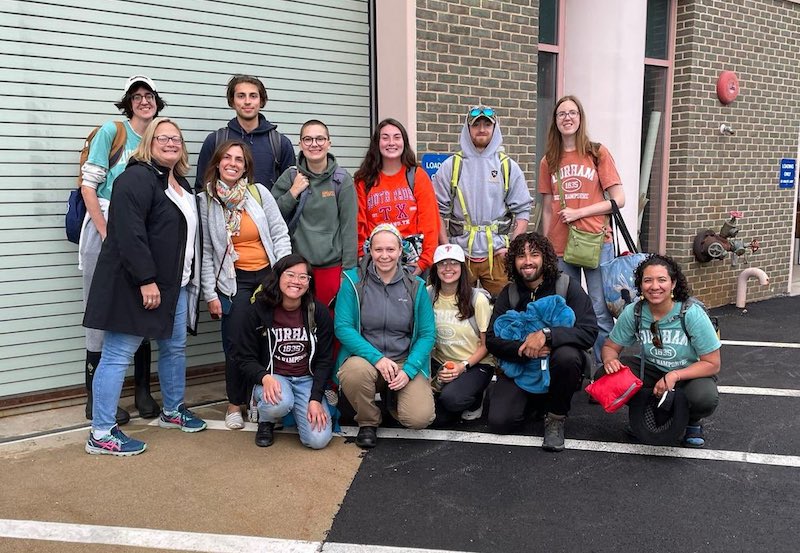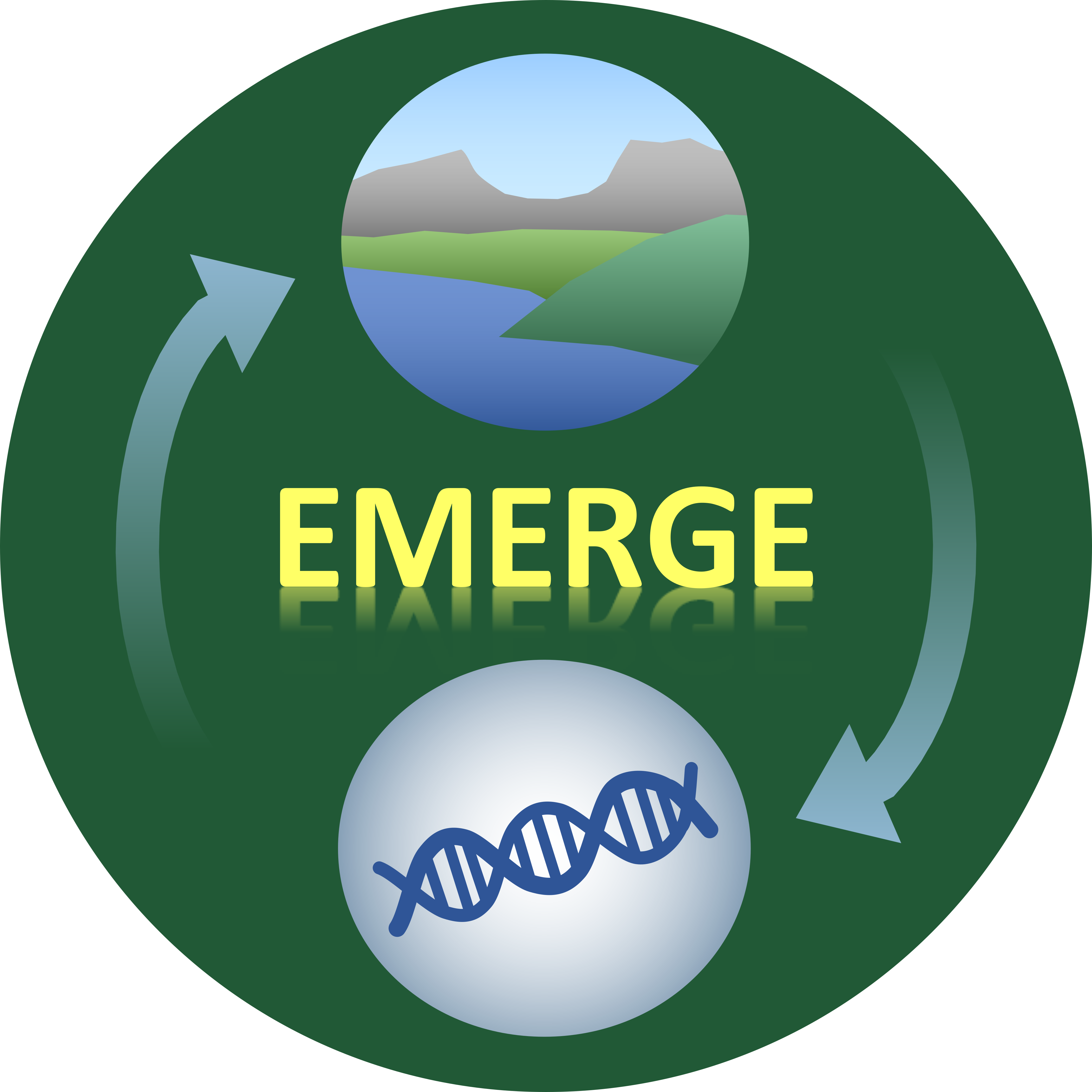Research Experiences for Undergraduates (REU) Program
The EMERGE Institute seeks enthusiastic, motivated undergraduate or post-baccalaureate students to engage in multidisciplinary science on how ecosystems are responding to change. This paid summer research experience is team-driven, co-mentored by EMERGE faculty, postdoctoral researchers and graduate students, and spans scales from microbes, to plants, to remote sensing. Students will develop projects in New Hampshire and travel to Arctic Sweden to conduct them, while gaining skills in networking, mentoring, and professional development, and will be financially and scientifically supported to present their research at a professional conference. Note that in order to participate and receive funding from the National Science Foundation, you must be a US citizen, US national, or permanent resident.
When: Next Program Dates TBD
Location: The University of New Hampshire and Abisko, Sweden
Contact: Ruth.Varner@unh.edu; florencia.fahnestock@unh.edu
Previous REU Experiences
Summer 2024
The 2024 REU cohort arrived in NH in June for their first 2 weeks of the 9-week program. The first week they participated in the Summer Program training as well as learning about their projects. In week 2, they worked on setting up their projects and getting ready for the field. The students then left for Sweden for their 5 weeks of fieldwork in Abisko!
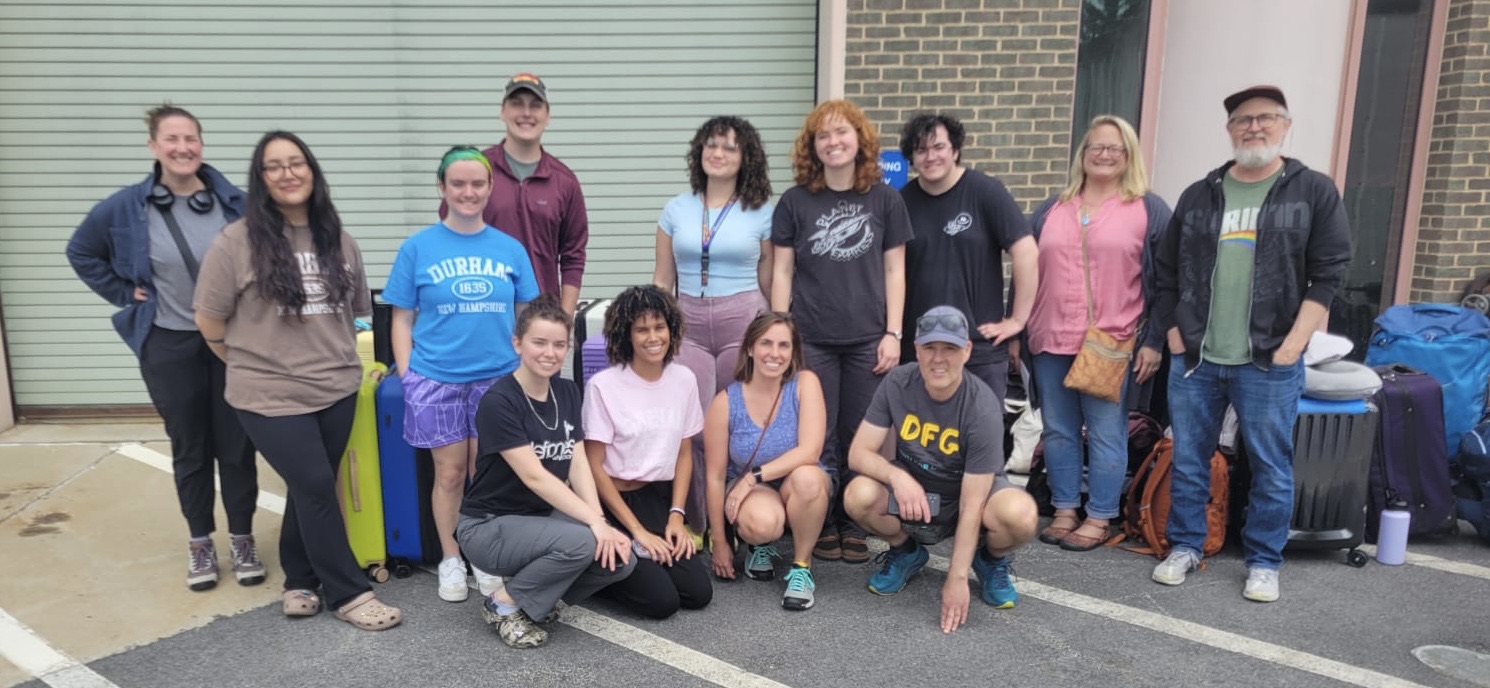
The students worked in two teams this year that were based on their projects: The Lakes Team and the Mirewide Team. It was a great summer! The students took ownership of their projects and worked together to help each other collect and run the data that was needed.
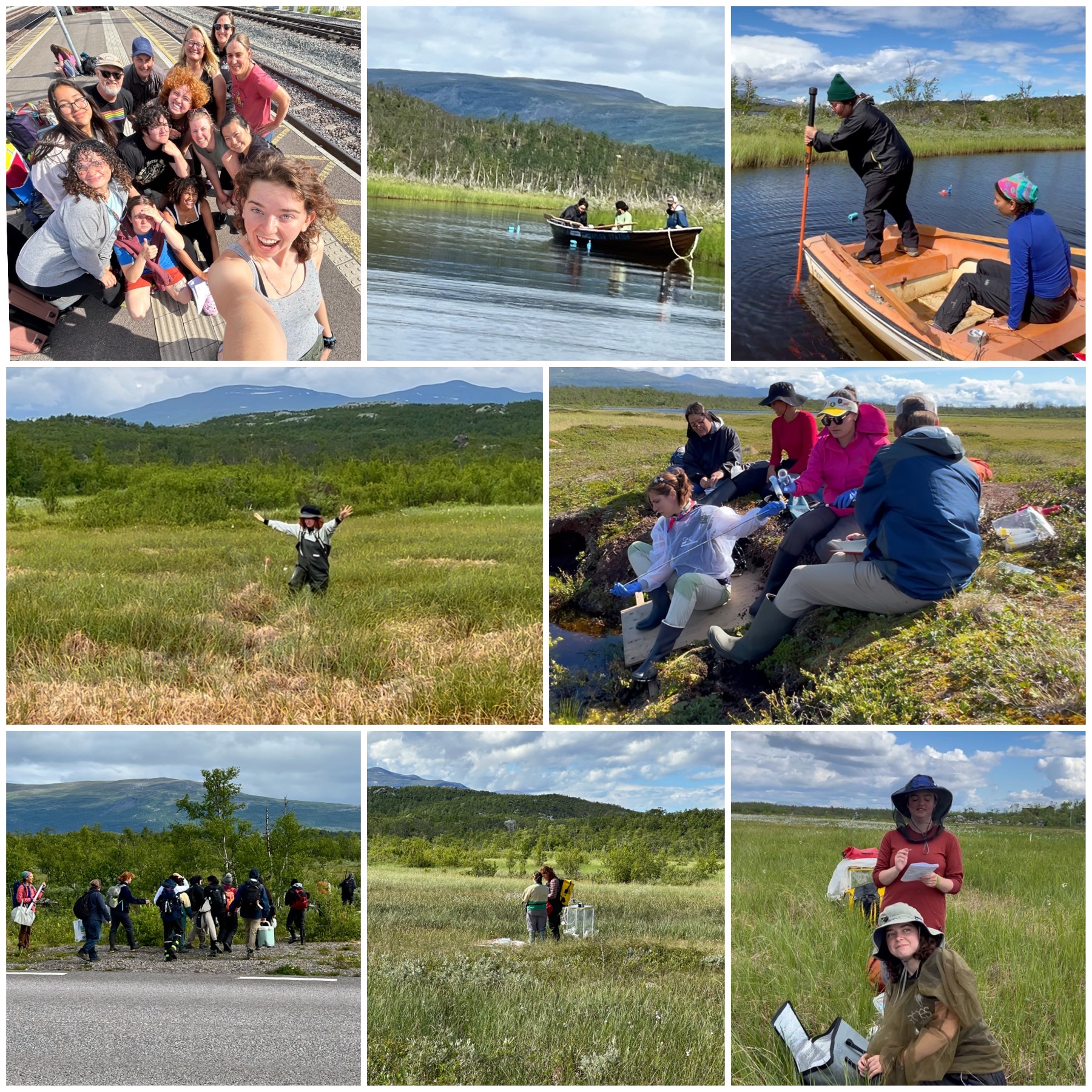
In December, the students travelled to Washington, D.C. to present their research at the Fall Meeting of the American Geophysical Union (AGU).
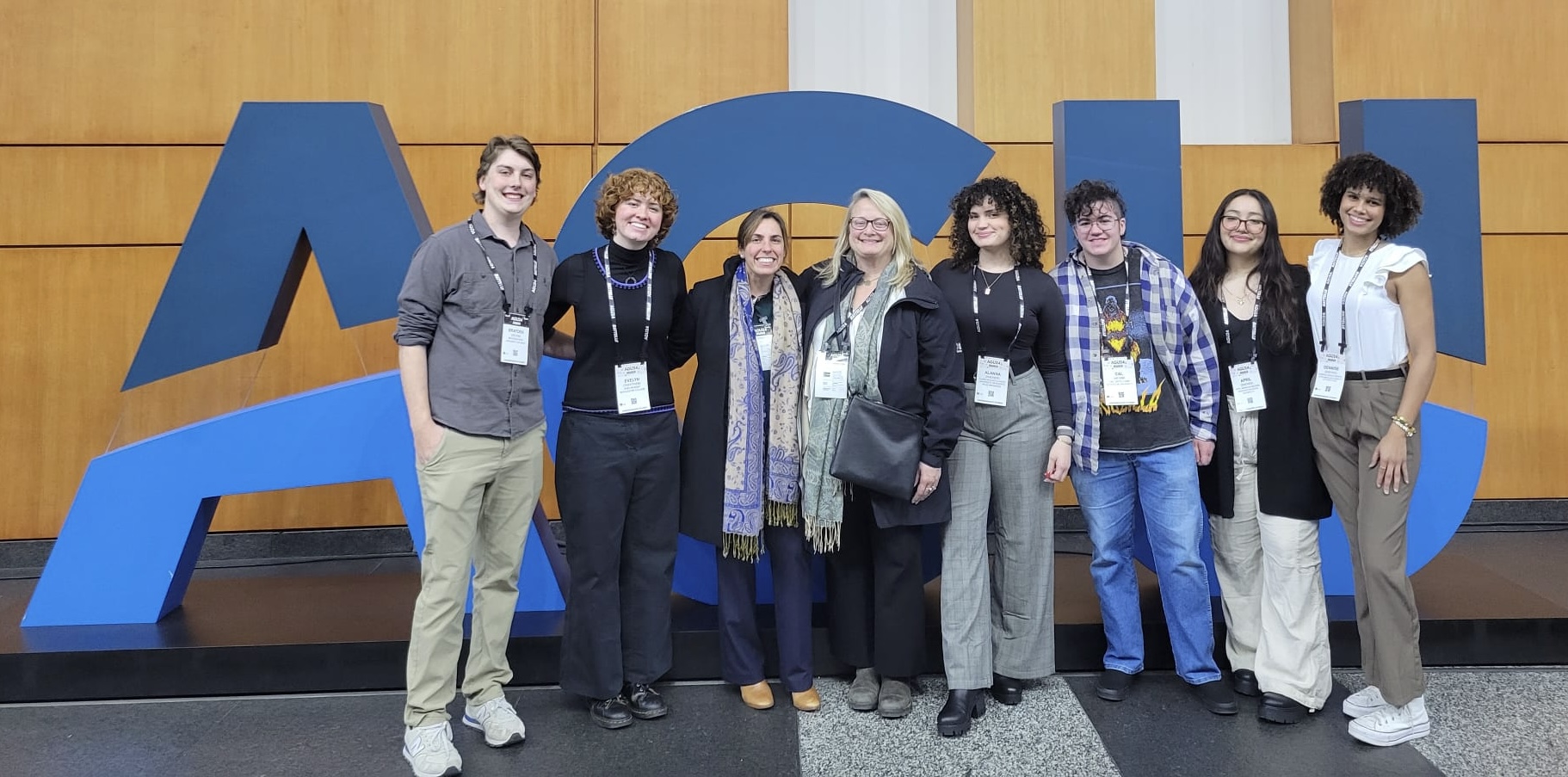
Poster Presentations
Cobak P, Palace M, Sullivan F, Distelcamp C, Kent E, King B, Maizy Wilcox, DeFelice H, McCalley C, Froburg E, Marlo Wilcox, Fahnestock MF, Varner RK. Using UAS Imagery to Monitor Permafrost Thaw and Vegetation Dynamics in a Northern Peatland.
Distelcamp C, Fahnestock MF, Cobak P, Kent E, King B, Wilcox M, Froburg E, DeFelice H, McCalley C, Guillot-Wallace C, Varner R. Trace elements indicate changes to hydrologic connectivity in thawing subarctic peatland.
Kent E, Cobak P, Distelcamp C, King B, Wilcox M, DeFelice H, Mendoza Mangaña A, McCalley C, Froburg E, Fahnestock MF, Varner RK. The impact of permafrost thaw on carbon dioxide exchange, vegetation composition, and below-ground DOC across Stordalen Mire, a high latitude permafrost peatland.
King B, Varner R, Fahnestock MF, Nenadich A, Serra D, Mendoza A, Jones C. Dissolved methane and ebullitive emissions from water bodies in a thawing permafrost peatland.
Mendoza Magaña A, Nenadich Álvarez AA, Serra Cordero DM, Kent E, King B, Distelcamp C, Fahnestock MF, Tacazon K, Bennett K, Malhotra A, Varner RK. Muti-Year Comparison of Methane and Carbon Dioxide Emissions Across a Permafrost Thaw Chronosequence in Arctic Sweden.
Nenadich Álvarez AA, Fahnestock MF, King B, Serra Cordero DM, Mendoza Magaña A, Distecamp C, Kent E, Froburg E, Guillot-Wallace C, Varner RK. Strontium as tracer of hydrologic connectivity of thaw ponds to local hydrology in thawing subarctic landscapes.
Serra Cordero DM, Fahnestock MF, Nenadich Álvarez A, Mendoza Magaña A, King B, Cobak P, Palace M, Varner R. Mercury Storage in Aquatic Vegetation from Subarctic Lakes and Thaw Ponds.
Wilcox M, Phan D, Li Y-F, Cobak P, Distelcamp C, Kent E, King B, Froburg E, McCalley C, DeFelice H, Rich VI, Fahnestock MF, Varner RK. Aquatic microbiomes in a high-latitude mire-and-lake complex.
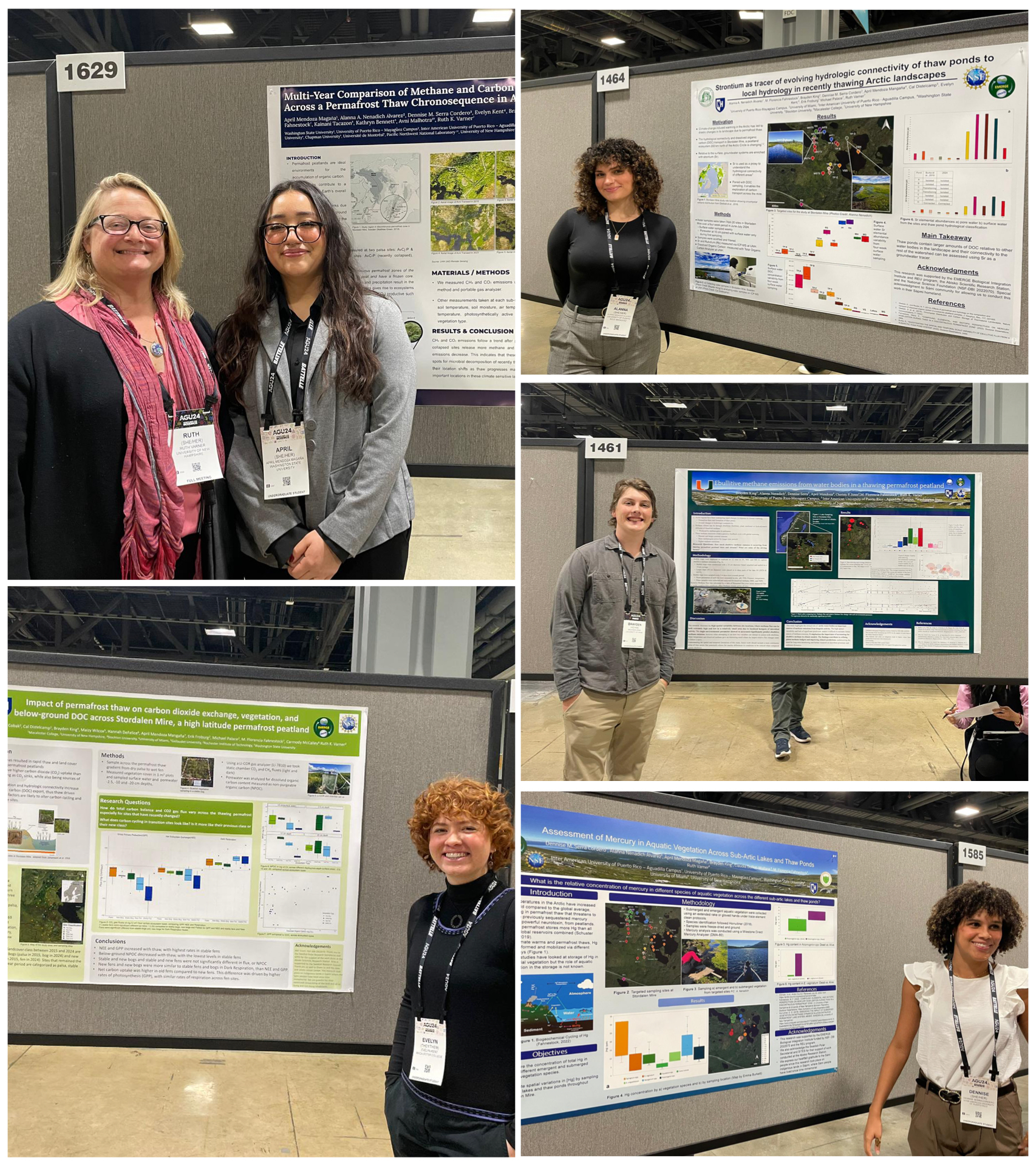
Summer 2023
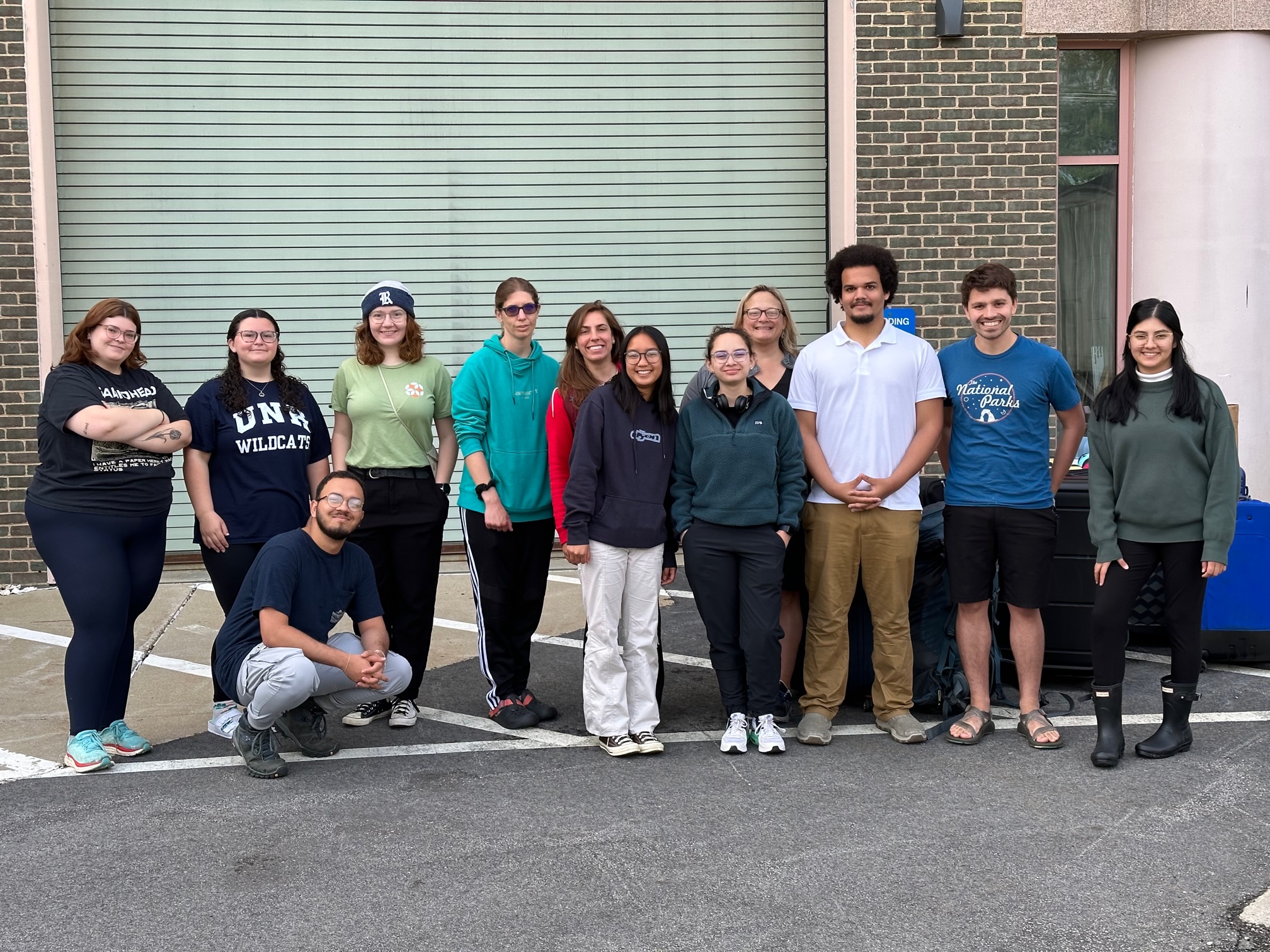
Summer 2022
